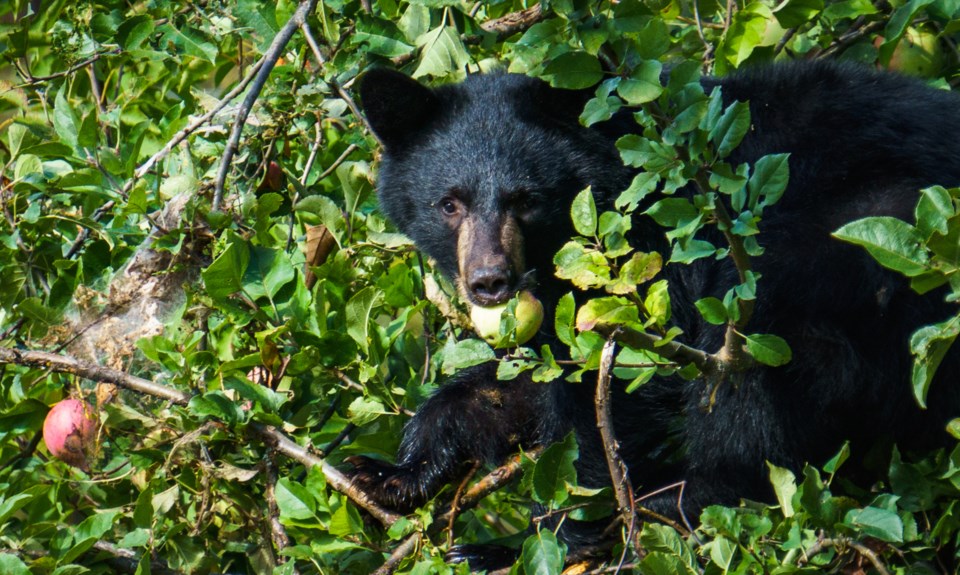A woman had quite a shock while gardening in her Garibaldi Estates backyard on Sunday.
She was bent over working in her flower garden when she was knocked to the ground by a black bear, according to Sea to Sky conservation officer Tim Schumacher.
"She turned around, and there was a black bear snout right there. She was able to retreat to safety inside of a shed, but the bear hung around for five to 10 minutes after she was swatted.
He said there was nothing in the woman's yard that would have drawn the bear.
"No, nothing in her yard at all. There's lots of fruit trees throughout those [nearby] yards. A lot of the fruit isn't ripe yet, but there are some apple trees that are just borderline becoming ripe now. And so I think that's ultimately what's attracting him to the area," he said, adding it is important to pick ripe fruit from trees right away before bears can get to them."And if you're not utilizing the fruit and you're not going to pick it, then removal of the tree is better management practice than letting the bears just eat the fruit off the tree. Because it comes back to the same thing ...bears become too comfortable in our yards, and they're just wandering through and they see some poor resident that's just minding her own business and she gets swatted, right?"
The relatively young bear was destroyed Monday as it posed an increased safety risk to the public.Schumacher said it is important residents pick fruit as it becomes ripe and pick the fruit off the ground as it falls, and scare bears away if they're in your backyard.
Bears are taught by their mothers how to get fruit and will continue to return to the same area or home, he noted.If there is a half-eaten apple on the ground around a fruit tree, chances are it was a bear eating it.
"And make sure your garbage cans are ideally in your garage or in an enclosed area," he added. "Those bins are only bear-resistant, they're not bear-proof. Having the clasps on them isn't a license to leave them out, because you don't want to put them in your garage. But if you don't have that availability, then you know by doing up both locking mechanisms is the next best thing."Even pop and beer cans can turn the animals into "garbage bears" and that leads to human-bear conflict.
"Any kind of recycling should be secured as well," he said. "The sugars from the pop and the smell of the beer cans and the sugars in that — sugar is very high in calories... and they can put on a lot of fat and that is what they are seeking. When they can smell that — and they have a very good sense of smell — people can be fined for even leaving out recycling."The Report All Poachers and Polluters (RAPP) hotline can be used to report wildlife-human interactions where public safety may be at risk.
Call: 1-877-952-7277 (RAPP) or #7277 on the TELUS Mobility Network. If the situation is not an emergency, report the incident online or contact the nearest Conservation Officer Service district office.
For fisheries violations related to salmon, contact Fisheries and Oceans Canada (DFO) at 1-800-465-4336. You can also contact your local RCMP detachment.


